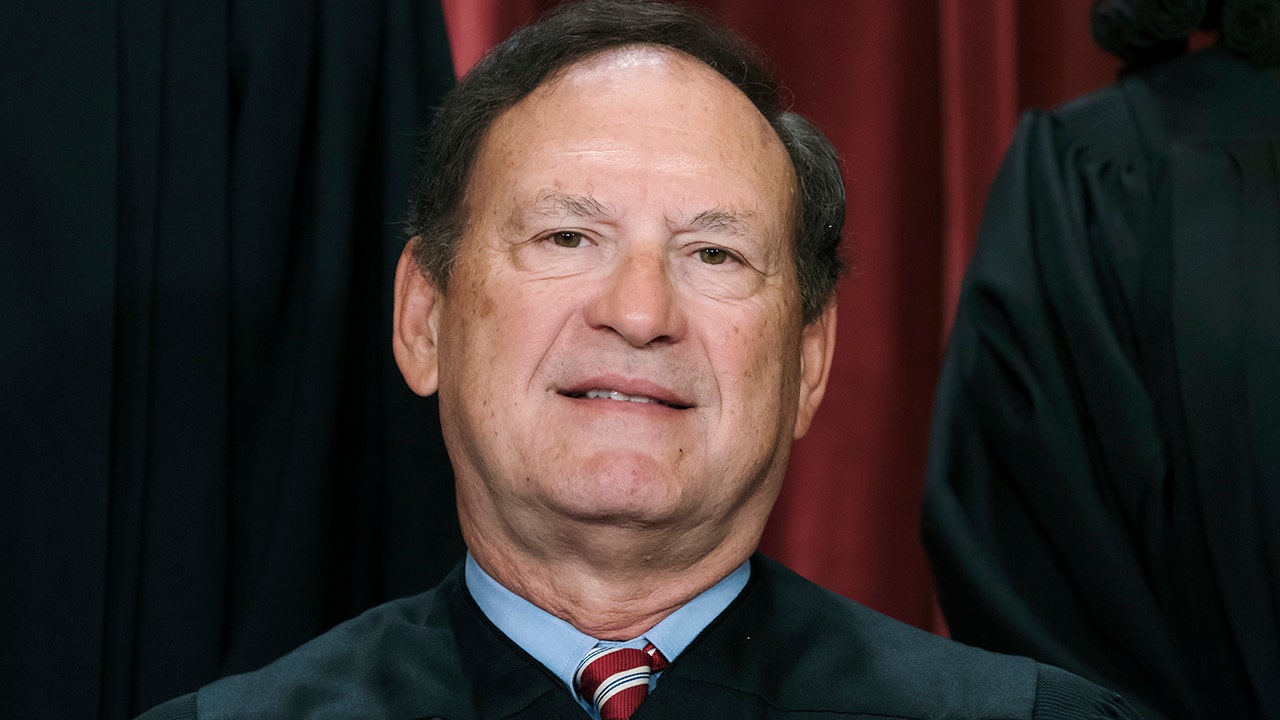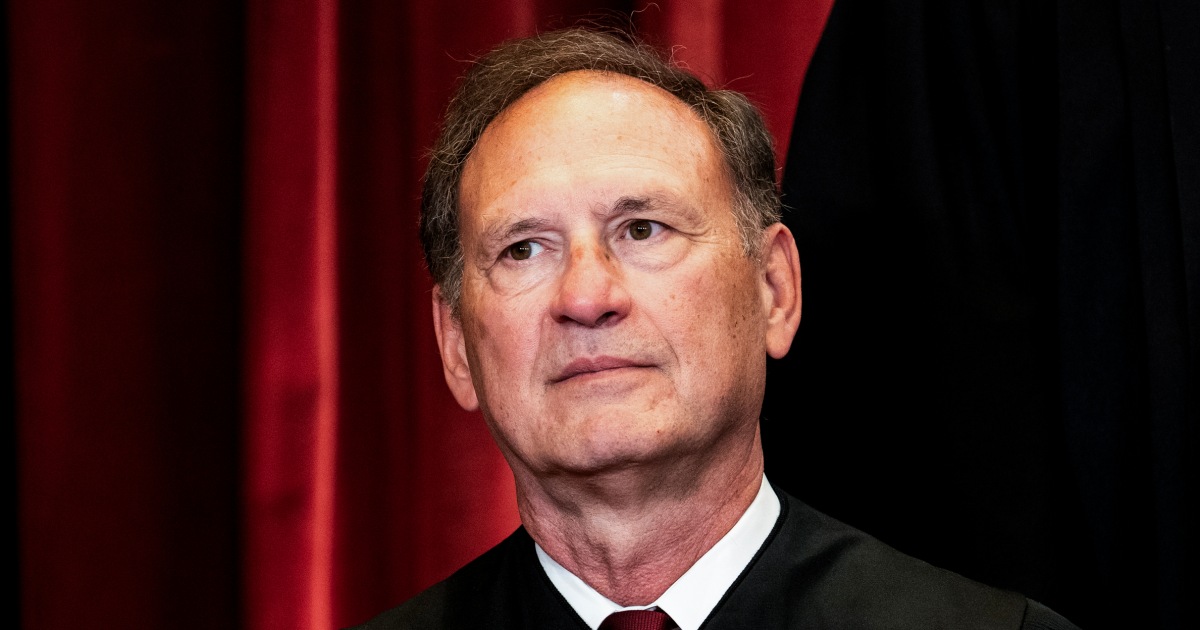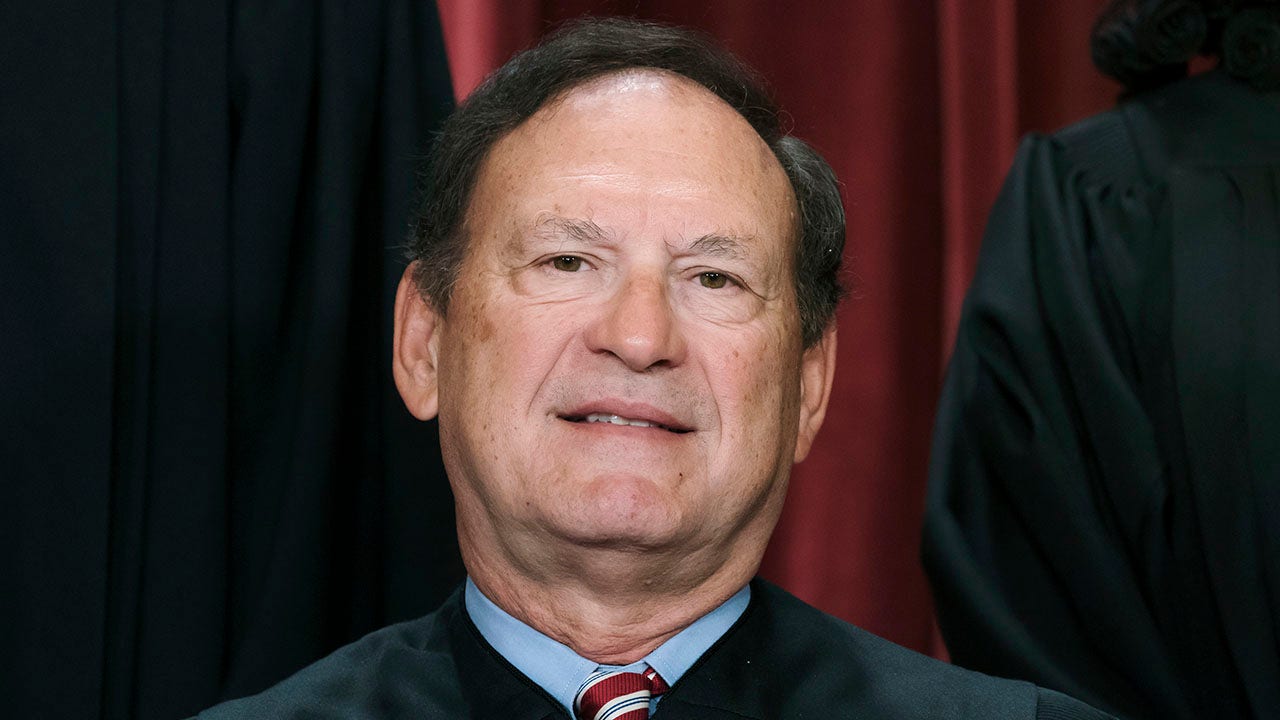WASHINGTON — Conservative Supreme Court Justice Samuel Alito declined Wednesday to step aside from two pending cases relating to former President Donald Trump and the Jan. 6, 2021, attack on the Capitol following recent news reports about contentious flags flown at his private properties.
In letters to members of Congress calling for his recusal, Alito said the two incidents involving flags at his home in Virginia and a vacation property in New Jersey, first reported by The New York Times, “do not meet the conditions for recusal” set out in the Supreme Court’s newly adopted ethics code.
Alito said that in both instances “a reasonable person who is not motivated by political or ideological considerations or a desire to affect the outcome of Supreme Court cases” would conclude that no recusal was required. One letter was sent to Democratic senators, while the other was sent to Democrats in the House.
He added he had no involvement in the decision to fly either flag, saying both were raised by his wife, Martha-Ann Alito.
In the first incident, neighbors said, an upside-down U.S. flag was flown in early 2021 just after Jan. 6 and the inauguration of President Joe Biden.
In the other incident, a flag linked with conservative Christians bearing the motto “Appeal to Heaven” was flown at the vacation home the following year.
Both flags have been embraced by some Trump supporters who protested the results of the 2020 election.
The Supreme Court is weighing two cases that touch upon Jan 6: Trump’s presidential immunity claim in his election interference case and an appeal brought by a man prosecuted for his role on the day itself. Rulings are due by the end of June.
Under the Supreme Court’s ethics rules, individual justices have the final word on whether to step aside from cases.
The ethics code was adopted last year after several ethics lapses were alleged, mostly against Alito and fellow conservative Justice Clarence Thomas. It attracted strong criticism because the justices get to enforce it themselves.
Alito cited the code in his letters, noting that a justice is presumed to be impartial and needs to step aside only if an “unbiased and reasonable person” aware of the facts would doubt that the justice could “fairly discharge his or her duties.”
In explaining the flying of the upside-down flag in more detail, Alito said his wife was “greatly distressed” because of a “very nasty neighborhood dispute” that he was not involved with. The Times had new details about that dispute in a story published Tuesday.
“A house on the street displayed a sign attacking her personally and a man who was living at the house trailed her all the way down the street and berated her in my presence using foul language, including what I regard as the vilest epithet that can be addressed to a woman,” Alito wrote.
He added that once he became aware of the flag he asked his wife to take it down but that “for several days, she refused.”
The Times’ account differed somewhat, with a neighborhood couple saying they had called the police at one point because they felt Martha-Ann Alito was harassing them. The Times also reported that the confrontation between the Alitos and the neighbors happened weeks after the upside-down flag had already been taken down.
As for the second flag, Alito said he could recall its being flown by his wife but was not aware of its meaning or any connection with the “stop the steal” effort to overturn the election results.
In both cases, Alito stressed that his wife is a private citizen who has her own free speech rights.
“My wife is fond of flying flags,” he added. “I am not.”















